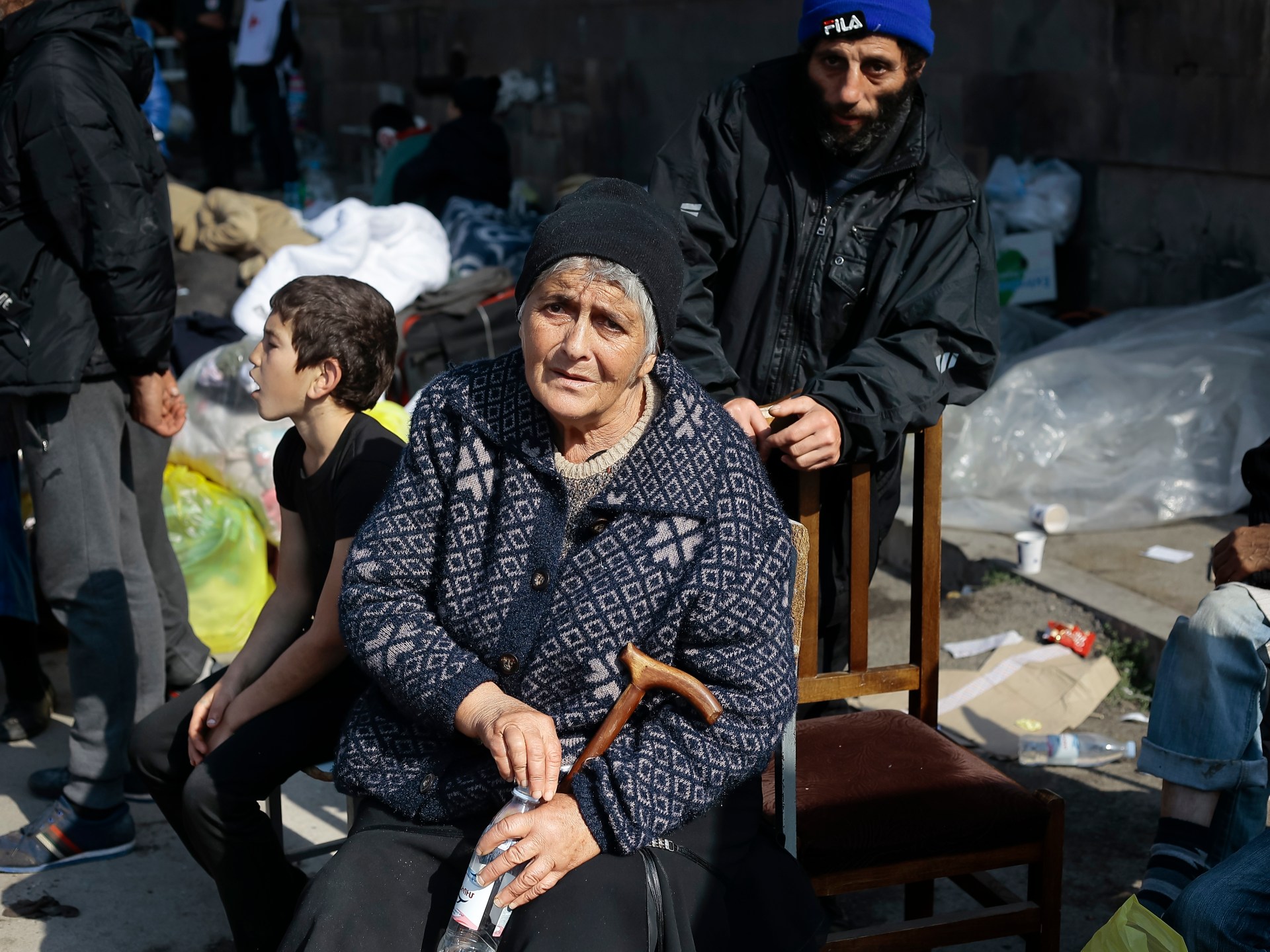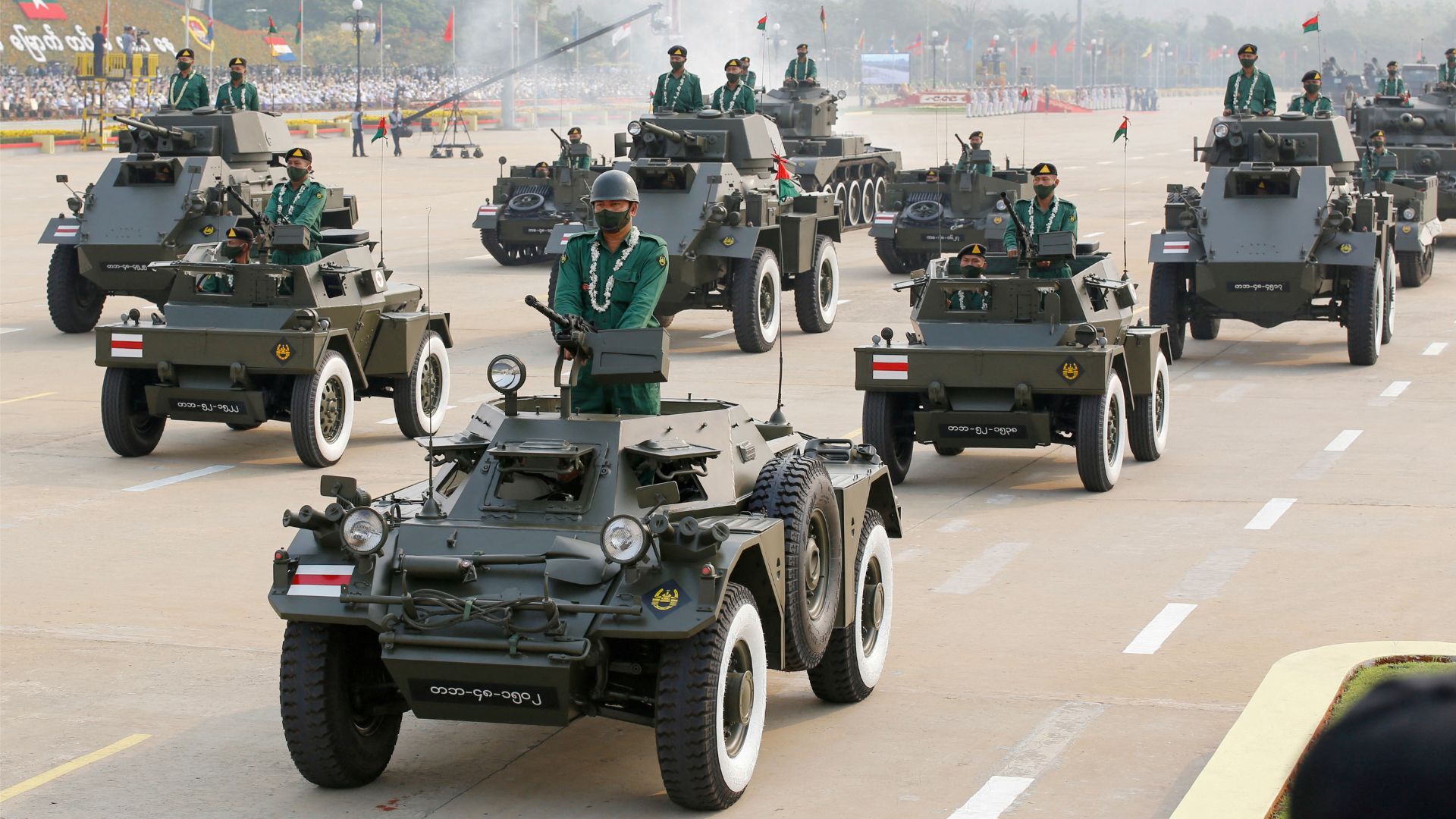Crisis fuels ‘desperate’ situation for civilians — Global Issues
Since the conflict between the Sudanese Armed Forces and the Rapid Support Forces began, more than 1.2 million people have been displaced within the already impoverished country, and hundreds of thousands have fled across neighbouring borders. A rising death toll, rampant looting of humanitarian aid, and rising needs for assistance are growing concerns, UN agencies warned.
The situation was “particularly desperate” in Khartoum, where people were fleeing the violence or were unable to leave, said Patrick Elliott, head of operations for Sudan for the International Federation of the Red Cross (IFCR), briefing journalists at the UN in Geneva, who just returned from a visit to Port Sudan.
Tarik Jašarević, for the World Health Organization (WHO), said the numbers being provided from the Ministry of Health were an underestimate of the overall death toll.
Crippled health sector
Many health facilities are simply unable to function, Mr. Jašarević said, also raising concerns for around 20,000 pregnant women who are currently unable to receive pre-natal care.
Some 11 million people are in urgent need of health assistance in Sudan, including more than 2.6 million women and girls of reproductive age who have barely any access to contraception, pregnancy-related services, or treatment programmes for sexually transmitted infections, or response services for sexual violence, which is reported to be rising as the crisis escalates, according to the UN Population Fund (UNFPA).
An estimated 260,000 pregnant women in Sudan, including 90,000 expected to give birth in the next three months, could be affected by ongoing fuel shortages and power cuts that have already forced many hospitals to suspend emergency obstetric and neonatal care services, the agency said.
Fuel shortages threaten safe births
“We are running out of fuel,” said Sarah, a midwife at Khartoum’s UN-supported Ombada Hospital. “If the electricity cuts persist, we don’t know how we will be able to assist pregnant women giving birth a week from now.”
The agency is set to distribute 10 metric tonnes of life-saving sexual and reproductive health supplies to hospitals and health facilities, and could expand its pilot project to provide solar power, launched in 2022 in several hospitals in Sudan, to health centres in Khartoum, providing round-the-clock electricity for maternity wards, operating rooms, blood bank refrigerators, incubators, and medicine storage facilities.
© UNFPA
Midwives at a UNFPA-supported hospital in Sudan before the crisis destroyed at least two out of three hospitals. (file)
UN food agency condemns looters
The World Food Programme (WFP) condemned on Friday the looting of humanitarian supplies at its distribution hub in south-central Sudan on Thursday, adding to $60 million in assets stolen since the start of the crisis in mid-April.
“This theft of humanitarian food and assets totally undermines these operations at a critical time for the people of Sudan,” the UN agency said. “This must stop.”
The WFP warehouses in El Obeid host one of the agency’s largest logistics bases in Africa and represents a “vital lifeline” for operations in Sudan and South Sudan, according to the agency.
“Millions will be impacted by this attack,” the agency warned, adding that initial reports suggest that food and nutrition supplies, vehicles, fuel, and generators have been looted in the most recent incident.
Since violence erupted, armed groups have attacked and looted WFP and partners’ storage facilities on multiple occasions and aid workers have been killed or injured, the agency said.
The ongoing violence could lead an estimated 2.5 million people in Sudan to “slip into hunger in the coming months”, the agency added.
Warning that acute food insecurity in Sudan could reach record levels, affecting more than 19 million people or 40 per cent of the population, WFP reiterated calls to all parties to the conflict to ensure the safety and security of humanitarian assistance, aid workers, and assets so that the agency’s life-saving work can move forward.
‘Fearlessly’ providing support
Mr. Elliott, of the IFCR, said a team had been established to support the Sudanese Red Crescent, which have been mobilizing daily to help those in need. Emphasizing the bravery of volunteers, who are “fearlessly” providing local support, he said an emergency funding appeal and reports of rising malnutrition were also among grave concerns.
While funding is yet to materialize to address the immediate needs in Khartoum and surrounding areas, he reported good cooperation between UN agencies who continue to reach communities in local areas and provide them with support.
Outside of Khartoum, volunteers were working with communities of internally displaced persons, he said.
However, in Port Sudan, the levels of malnutrition are significant, he added.
Security Council considers UN mission renewal
The UN Security Council is scheduled to meet on Friday afternoon to consider the Secretary-General’s latest reports on the country and take action on the potential renewal of the mandate of the UN Integrated Transition Assistance Mission in Sudan (UNITAMS).
The 15-member Council had established the special political mission in 2020 for an initial year to assist Sudan, then had renewed it annually. The UN Mission mandate is set to expire on Saturday.

© WFP/Mohamed Elamin
In Port Sudan, emergency food packages are distributed to people fleeing fighting in Khartoum.
Check out our Latest News and Follow us at Facebook
Original Source






